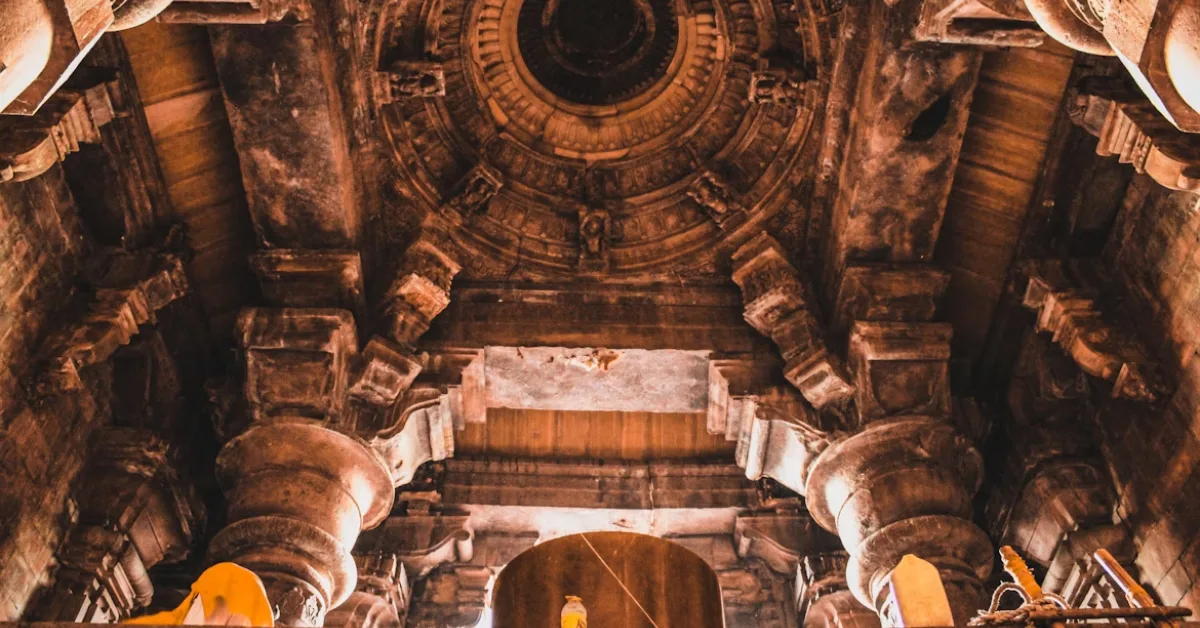What is Ancient Indian History?
Ancient Indian History refers to the study of early civilizations, empires, and cultural developments in the Indian subcontinent before the medieval period. It includes key topics like the Indus Valley Civilization, the Vedic Age, and the rise of early kingdoms and philosophies. This topic is frequently asked in exams like SSC CGL, CHSL, Railway, UPSC, CDS, and other state-level government exams.
What is Indus Valley Civilization? (2500 BC – 1500 BC)
The Indus Valley Civilization (IVC) marks the beginning of Proto-History in India. It is also called the Harappan Civilization because Harappa was the first site to be discovered. This was one of the world’s earliest urban civilizations.
People began living in well-planned cities with wide roads, advanced drainage systems, and houses made of baked bricks. The civilization also had trade links with Mesopotamia, showing its economic and cultural connections.
Important sites include:
- In present-day Pakistan: Harappa, Mohenjo-Daro, Ganeriwala
- In present-day India: Dholavira, Kalibangan, Rakhigarhi, Lothal, and Rupar
Since Harappa was the first site discovered, the entire civilization is often referred to as the Harappan Civilization. It developed mainly in the northwestern parts of the Indian subcontinent.
Also, attempt SSC CGL Mock Test
Ancient History Free E-book for SSC preparation
Prepare smarter for SSC CGL and other government exams with this comprehensive Ancient History e-book.
What does the Ancient History e-book include?
This e-book offers a complete overview of Ancient Indian History tailored for SSC CGL, CHSL, Railway, and other government exams. It provides concise summaries of all major historical periods and practice content to boost your exam readiness.
Key Features:
- Covers important topics such as:
- Pre-history
- Indus Valley Civilization
- Vedic Age
- Mahajanapadas
- Buddhism and Jainism
- Mauryan Empire
- Includes past year questions for reference
- Practice MCQs to reinforce learning
- Useful for both beginners and advanced aspirants
What is Ancient Indian History? Vedic Age (1500 BC – 600 BC)
The Vedic Age is the period when the Vedas, the oldest sacred texts of India, were composed in Vedic Sanskrit. This era is divided into Early Vedic (1500–1000 BC) and Later Vedic (1000–600 BC) periods.
There are four Vedas:
- Rig Veda – The oldest and most important Veda. It belongs to the Early Vedic period and contains hymns praising natural forces like fire, sun, and wind.
- Sama Veda – Known for its musical chants, it forms the foundation of Indian classical music.
- Yajur Veda – Contains ritual formulas used during religious ceremonies.
- Atharva Veda – Includes spells, charms, and folk traditions, reflecting the daily life and beliefs of the people.

Check out Courses for All Govt Exams
Key strategies for SSC CGL ancient history preparation
Use the following bullet points to quickly review the most important concepts from Ancient Indian History, especially useful for SSC, Railway, UPSC, and other government exams:
- Ancient Indian History:
Focuses on early Indian civilizations, political systems, religious ideas, and cultural developments before the medieval era. - Indus Valley Civilization:
Recognized as India’s first urban civilization, known for its planned cities, drainage systems, and trade with Mesopotamia. - Vedic Age:
The period when the Vedas were composed. It shaped early Indian religion, social structure, and philosophical thought. - Exam Relevance:
These topics are frequently asked in exams like SSC CGL, CHSL, Railway, UPSC Prelims, CDS, and State PSCs. - Study Resource:
A free PDF is available with chapter-wise notes, multiple-choice questions (MCQs), and previous year questions to support efficient preparation.
Ancient Indian History – FAQs
Ans. Because Harappa was the first site discovered.
Ans. Asked in SSC Stenographer, Railway ALP, and MPPSC exams.
Ans. Spells, charms, and folk traditions of daily life.
Ans. The Rig Veda contains hymns praising natural forces like Agni (fire), Surya (sun), and Vayu (wind).
Ans. Questions from the Vedic period, Vedas, and societal structure are frequently asked in SSC CGL, CHSL, Railway ALP, and Group D exams.
- Top 100 SSC CGL General Awareness Questions, Download PDF
- 200 Most Important Questions for SSC GD 2026, Attempt Quiz & Get PDF
- 1000 SSC CGL General Knowledge Questions
- SSC CGL Tier 2 GA Revision Notes, One Liner Facts
- Most Repeated SSC CGL Tier 2 General Awareness Questions 2025
- Most Repeated General Awareness Questions for SSC CHSL Tier 2

Hello, I’m a content writer working at Oliveboard. I focus on creating blogs, articles, and educational content that’s simple, clear, and saves time for readers. I believe in writing that adds real value without overcomplicating things. I also have strong knowledge of banking and government exams, which helps me create content that is both accurate and easy to understand. With experience and consistency, I aim to make preparation smoother for every learner.
